Moya Bailey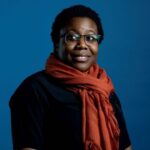
Moya Bailey is an associate professor in the Department of Communication Studies at Northwestern University. Her work focuses on marginalized groups’ use of digital media to promote social justice, and she is interested in how race, gender, and sexuality are represented in media and medicine. She is the digital alchemist for the Octavia E. Butler Legacy Network and the Board President of Allied Media Projects, a Detroit-based movement media organization that supports an ever-growing network of activists and organizers. She is a co-author of #HashtagActivism: Networks of Race and Gender Justice (MIT Press, 2020) and is the author of Misogynoir Transformed: Black Women’s Digital Resistance (New York University Press, 2021). She was an MLK Visiting Scholar at MIT for the 2020–2021 academic year.
Claudio Benzecry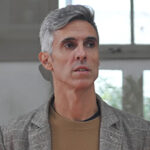
Claudio Benzecryis an associate professor in the Department of Communication Studies specializing in the sociology of culture. He is author of The Opera Fanatic: Ethnography of an Obsession (University of Chicago Press, 2011) which earned several American Sociological Association awards and was declared one of ten major books in sociological theory by Contemporary Sociology. Benzecry’s book From Head to Toe: Everyday Globalization in a Creative Industry (University of Chicago Press) is currently under contract.
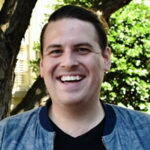 Thomas J. Billard
Thomas J. Billard
Thomas J. Billard, PhD is an assistant professor in the Department of Communication Studies. They are a political communication scholar whose research spans mainstream communication studies, the sociology of social movements, and transgender studies. Their research has appeared in a number of prominent academic publications, including Communication Research Reports, Frontiers in Psychology, the International Journal of Communication, Journalism & Mass Communication Quarterly, Marketing Theory, Mass Communication and Society, Media, Culture & Society, and Politics, Groups, and Identities, as well as in venues such as the Oxford Research Encyclopedia of Politics and the SAGE Encyclopedia of Trans Studies. Dr. Billard previously served as Consortium on Media Policy Studies Fellow and, later, as Archival Fellow at the National Center for Transgender Equality. In these roles, they established the Trans Equality Archive, the single largest collection of transgender political history in the United States. They received their PhD from the Annenberg School for Communication and Journalism at the University of Southern California and their honors BA from the School of Media and Public Affairs at the George Washington University. Website: thomasjbillard.com
Jeremy Birnholtz
Jeremy Birnholtz’s research focuses on human-computer interaction issues, such as attention, information sharing, and collaboration through the use of technology. He has lectured and published widely on subjects that include young people’s attention to instant messaging, interruptions in attention in seniors with chronic pain, and deception in text messaging.
Pablo Boczkowski
Pablo J. Boczkowski’s research examines the transformation of print culture in the digital age. He has written three books, most recently The News Gap (co-authored with Eugenia Mitchelstein, MIT Press, 2013), and over twenty journal articles and fifty conference presentations. For more information, see Pablo Boczkowski’s personal site.
 Larissa Buchholz
Larissa Buchholz
Larissa Buchholz is an assistant professor in the Department of Communication Studies and holds a courtesy appointment in the Department of Sociology, Weinberg College of Arts & Sciences. She is a sociologist of culture whose research intersects with global and transnational sociology, inequality, and economic sociology, but also is informed by interests in theory and research methods. Her work deploys both qualitative and quantitative methods and links micro and macro levels.
Kalyani Chadha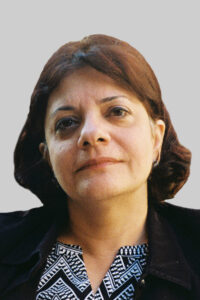
Kalyani Chadha is an associate professor of journalism at Medill. Her research is primarily centered around the examination of journalistic practice as well as the societal implications of new media technologies in varied contexts. Informed by critical and sociological theorizing, her scholarship is international in its orientation, with a particular emphasis on journalism-related developments in India and media globalization in Asia. Her recent work focuses on the implications of the rise of right-wing media in India. Additionally, she is also co-editing a collection on journalism and precarity.
Aymar Jean Christian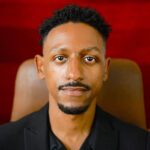
Aymar Jean “AJ” Christian is an assistant professor of communication studies at Northwestern University and a Fellow at the Peabody Media Center. His first book, Open TV: Innovation Beyond Hollywood and the Rise of Web Television on New York University Press, argues the web brought innovation to television by opening development to independent producers. His work has been published in numerous academic journals, including The International Journal of Communication, Cinema Journal, Continuum, and Transformative Works and Cultures. He has juried television and video for the Peabody Awards, Gotham Awards, and Tribeca Film Festival, among others. He leads OTV | Open Television, a research project and platform for intersectional television. OTV programs have received recognition from HBO, the Television Academy (Emmy Awards), New York Television Festival, City of Chicago, Streamy Awards, and Independent Filmmaker Project (Gotham Awards). Its programming partners have included the Museum of Contemporary Art Chicago, Art Institute of Chicago, Block Museum of Art, and City of Chicago, along with numerous galleries, community organizations, and universities. Dr. Christian’s blog, Televisual, is an archive of over 500 posts chronicling the rise of the web TV market, and he has written regular reports on TV and new media for Indiewire, The Wall Street Journal, Slate, and Tubefilter. He received his PhD from the University of Pennsylvania.
Noshir Contractor
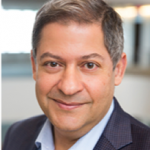
Professor Noshir Contractor is investigating factors that lead to the formation, maintenance, and dissolution of dynamically linked social and knowledge networks in communities. Specifically, his research team is developing and testing theories and methods of network science to map, understand and enable more effective networks in a wide variety of contexts including communities of practice in business, science and engineering communities, disaster response teams, public health networks, digital media and learning networks, and in virtual worlds, such as Second Life.
Ignacio Cruz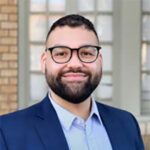
Ignacio Fernandez Cruz is an assistant professor in the Department of Communication Studies in the School of Communication at Northwestern University.
Dr. Cruz’s expertise focuses on the areas of emerging technology at work, the sociotechnical practices between AI tools and their users with a focus on bridging bias and equality within technology design and adoption. He is currently working on a variety of projects examining hiring and selection practices of personnel who use AI for talent acquisition. Additionally, he is interested in the reshaping of work and personnel practices that are impacted by accelerating digital technologies and platforms.
Leslie DeChurch
Leslie DeChurch’s research investigates teamwork and leadership in organizations. She is Professor of Communication Studies, and holds a courtesy appointment in the Department of Psychology, Weinberg College of Arts & Sciences. She is President and Chairperson of the Board of INGRoup, the Interdisciplinary Network for Group Research. Professor DeChurch leads the ATLAS lab: Advancing Teams, Leaders, and Systems. ATLAS explores the dynamics through which teams form, and how these dynamics affect their performance as teams, and their ability to work as larger organizational systems (multiteam systems). ATLAS conducts laboratory and online experiments, meta-analytic integrations, and field studies of teams and leaders to understand their core organizing processes. Such processes include: leadership networks, team cognition, team conflict and motivation, and team information sharing. DeChurch’s research seeks to build high-functioning teams that work in scientific innovation, space exploration, healthcare, and the military. The ATLAS research portfolio is currently supported by the National Science Foundation (NSF), National Institutes for Health (NIH), National Aeronautical and Space Agency (NASA), and Army Research Office (ARO). Her work has appeared in outlets including the Proceedings of the National Academy of Sciences (PNAS), Journal of Applied Psychology (JAP), Journal of Management (JoM), Organizational Behavior and Human Decision Processes (OBHDP), and Leadership Quarterly (LQ). She is co-editor of Multiteam Systems: An Organization Form for Dynamic and Complex Environments and recently served on the National Research Council Committee on The Context of Military Environments. She has contributed to several National Research Council Committees on teamwork issues ranging from measurement to innovation. She was awarded an NSF CAREER to explore Leadership for Virtual Organizational Effectiveness. DeChurch holds a PhD in Organizational Psychology and is a fellow of the American Psychological Association (APA), Association for Psychological Science (APS), and the Society of Industrial & Organizational Psychology (SIOP).
Nicholas Diakopoulos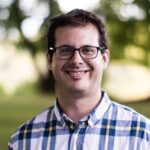
Nicholas Diakopoulos is an Assistant Professor in the Northwestern University School of Communication Department of Communication Studies. He is also a Tow Fellow at Columbia University School of Journalism, and Associate Professor II at the University of Bergen Department of Information Science and Media Studies. His research is in computational and data journalism with emphases on algorithmic accountability and social computing in the news. He is co-author of the 6th Edition of Designing the User Interface, co-editor of a forthcoming book on Data-Driven Storytelling, and is under contract with Harvard University Press to write a monograph on automation in the news media. He received his Ph.D. in Computer Science from the School of Interactive Computing at Georgia Tech where he co-founded the program in Computational Journalism.
Rayvon Fouché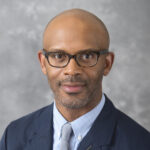
Rayvon Fouché holds a joint appointment as Professor of Communication Studies and Professor in the Medill School of Journalism, Media, and Integrative Marketing Communications. He authored or edited Black Inventors in the Age of Segregation (Johns Hopkins University Press, 2003), Appropriating Technology: Vernacular Science and Social Power (University of Minnesota Press, 2004), Technology Studies (Sage Publications, 2008), the 4th Edition of the Handbook of Science & Technology Studies (MIT Press, 2016), and Game Changer: The Technoscientific Revolution in Sports (Johns Hopkins University Press, 2017).
Elizabeth Gerber
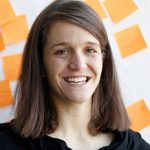
Elizabeth Gerber, an associate professor of mechanical engineering in the Robert R. McCormick School of Engineering and Applied Science, holds a joint appointment with the School of Communication, serving as an assistant professor of technology and social behavior in the communication studies department. Gerber’s research interests include design, innovation management, and organizational behavior. She teaches undergraduate and graduate classes on product and service design, which emphasize the design thinking methodology—a human-centered, problem-solving approach focused on gaining inspiration from human needs, working in diverse groups to generate ideas, and prototyping ideas for rapid feedback. Gerber also advises students in the award-winning design initiative she founded called Design for America, where students take on extracurricular design work to make social and local impact.
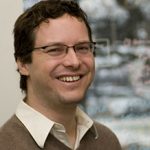 Darren Gergle
Darren Gergle
Darren Gergle’s teaching and research interests are broadly defined by the fields of Human-Computer Interaction (HCI) and Computer Supported Cooperative Work (CSCW). In particular, he is interested in furthering our theoretical understanding of the impact technological mediation has on communication, and applying this to the design, development, and evaluation of novel collaboration technologies.
Heather Hendershot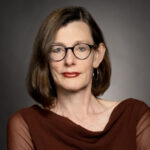
Heather Hendershot is a professor in Communication Studies at Northwestern University. She studies TV news, conservative media, political movements, and American film and television history. Her courses emphasize the interplay between creative, political, technical, and regulatory concerns, and how those concerns affect what we see on the screen (big or little). In the winter 2024 quarter at Northwestern she will teach a doctoral elective seminar entitled “Media and American Politics.”
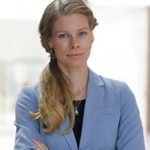 Ágnes Horvát
Ágnes Horvát
Ágnes Horvát is an assistant professor at Northwestern University’s School of Communication and holds a courtesy appointment at the Kellogg School of Management. Her current research spans the areas of collective intelligence, crowdfunding, and the creative industries. Horvát’s work focuses on developing theory and methods for the study of complex networks at the intersection of computer science, physics, and social phenomena. Her interdisciplinary approach seeks to understand the behavior of connected crowds by building on techniques from network science, machine learning, statistics, and exploratory visualization. Before joining the School of Communication she was a post-doctoral researcher at the Northwestern Institute on Complex Systems (NICO). She earned a Ph.D. in Interdisciplinary Physics from Heidelberg University, Germany in 2013 and also holds a B.Sc. in Physics and Computer Science from the Babeș-Bolyai University, Romania and a B.A. in Photography, Film, and Media from the Sapientia University, Romania.
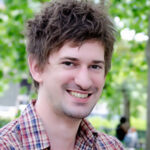 Matthew Kay
Matthew Kay
Matthew Kay works in human–computer interaction and information visualization, specifically communicating uncertainty, usable statistics, and personal informatics. He tackles problems using a multi-faceted approach, including qualitative and quantitative analysis of behavior, building and evaluating interactive systems, and designing and testing visualization techniques. He co-directs the Midwest Uncertainty Collective (MU collective). He holds appointments in Communication Studies and Computer Science. Previously, he was faculty at the University of Michigan School of Information.
 Bruce Lambert
Bruce Lambert
Dr. Lambert received his B.A. (1987, Phi Beta Kappa, magna cum laude, with high distinction), his M.A. (1988), and his Ph.D. (1992) in Speech Communication from the University of Illinois at Urbana-Champaign. He joined northwestern University in 2013, after 22 years at the University of Illinois at Chicago (UIC). Dr. Lambert is currently professor in the Department of Communication Studies and Director of the Center for Communication and Health at Northwestern. Dr. Lambert’s research focuses on health communication, drug name confusion, patient and medication safety, health literacy, health information technology, prescribing behavior, pharmacoepidemiology, pharmaceutical promotion, health outcomes associated with provider-patient communication, and on information retrieval. He is currently the principal investigator on a five year center grant, funded by the U.S. Agency for Healthcare Research and Quality, to study techniques for optimizing medication safety. Dr. Lambert’s publications have appeared in JAMA, The Archives of Internal Medicine, Journal of General Internal Medicine, Medical Care, The American Journal of Epidemiology, Drug Safety, The Journal of Medical Systems, Health Communication, Social Science & Medicine, The American Journal of Health-System Pharmacy, The Drug Information Journal and many others. He serves on the editorial board of the journal Health Communication. For his work on predicting and preventing drug name confusion errors, Dr. Lambert received the Best Published Paper award from the American Pharmaceutical Association in 1997, a Cheers Award from the Institute for Safe Medication Practices, and a Center Director’s Special Citation award from the U. S. Food and Drug Administration. Dr. Lambert is a founding member of the UIC Institute for Patient Safety Excellence. He is President of BLL Consulting, Inc. and Pharm I.R., Inc., firms that specialize in problems that involve health, communication, and technology. He has served as a Special Government Employee for the U. S. FDA and a member of the U. S. Pharmacopeia’s Consumer Interest and Health Education Advisory Panel. Dr. Lambert was a founding member of the Steering Committee of the Chicago Patient Safety Forum, is a Fellow of the Institute of Medicine of Chicago, is chair of the Research Committee of the National Patient Safety Foundation and serves on the Adverse Event Advisory Committee for the Illinois Department of Public Health.
Calvin Liang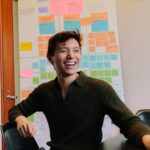
Calvin Liang (he/they) is a Mancosh Postdoctoral Fellow in Communication Studies at Northwestern University. Their research brings together the fields of Human-Computer Interaction, Social Computing, and Public Health to inform a community-driven approach to technology development for health equity. He previously earned a PhD in Human Centered Design and Engineering from the University of Washington.
Website: https://www.liangcalvin.com/
Duri Long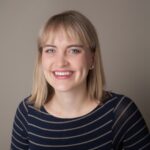
Duri Long is a human-centered AI researcher interested in issues surrounding AI literacy and human-AI interaction. Increasing public interest in and use of AI demands improved resources for aiding in public understanding of AI as well as developments in technology that allow AI to interact comfortably with humans in complex social settings. Dr. Long’s research looks to how humans interact and learn as a way of informing the design of public AI literacy interventions as well as the development of AI that can interact naturally and improvise creatively with people in complex social environments.
Dr. Long employs a variety of methodologies and theoretical frameworks in her research, drawing on the learning sciences, design research, and cognitive science. She has experience working with artists and museums around the country to develop co-creative, embodied exhibits and art installations involving AI and technology. Dr. Long holds a Ph.D. in Human-Centered Computing from Georgia Tech and a BS in Computer Science with a second major in Dramatic Art from the University of North Carolina at Chapel Hill.
Yingdan Lu
Yingdan Lu is an Assistant Professor in the Department of Communication Studies at Northwestern University. Yingdan’s research focuses on digital technology, political communication, and information manipulation in authoritarian and democratic contexts. Her research employs both computational and qualitative methods to understand how authoritarian governments use digital media and artificial intelligence to maintain their rule, and how individuals experience digital technology in different media environments. She received her Ph.D. in Communication from Stanford University, where she also earned a Ph.D. minor in Political Science. She holds an M.A. in East Asian Studies from Stanford University and a B.A. in Journalism and Communication from Tsinghua University.
Erik Nisbet
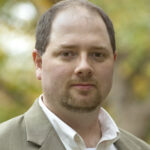
Erik C. Nisbet is the Owen L. Coon Endowed Professor of Policy Analysis & Communication and director of the Center for Communication & Public Policy in the School of Communication at Northwestern University. His research lies at the intersection of communication, public opinion, and public policy in the areas of science, technology, and environmental policy, governance and elections, and international security. An expert on cross-national survey methodology and field experiments, Erik has led research projects in the United States, Russia, Ukraine, Serbia, Turkey, Iran, France, Great Britain, Germany, Poland, and several Arab countries. His research has been supported by multiple grants from the National Science Foundation and the U.S. Department of State. Erik’s scholarship centers on three broad theoretical questions: 1) how strongly held partisan, national, religious, or ethnic identities bias the processing of media or persuasive messages and the consequences for policy attitudes and behavior, 2) causes and consequences of online information-seeking and expression in authoritarian and non-democratic contexts, and 3) how macro contextual factors interact with individual differences or behaviors to explain heterogeneity in communication processes and outcomes.
Courtney Scherr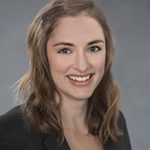
Courtney Scherr is an assistant professor in the Department of Communication Studies and a faculty member in the Center for Communication and Health. Her research agenda focuses on the theory guided design and evaluation of messages containing scientific information about risk to patients. The goal of her work is to increase patient understanding, engage patients in informed decision making, and increase adherence to medical recommendations. Her current projects examine the communication of hereditary cancer risk and patient outcomes from genetic testing.
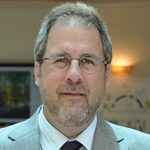 James Schwoch
James Schwoch
James Schwoch explores global media, media history, international studies, and security issues. His research and teaching encompass methods and approaches for understanding media, technology and society that move beyond traditional categories of global analysis, such as comparing media systems of nation-states. Schwoch centrally develops ways to understand media, technology, and society through analyzing extraterritorial, planetary, and extraplanetary frameworks, such as the electromagnetic spectrum, satellite orbits, or space debris. He has published six books and a wide range of articles, and his research has been funded by many organizations, including NSF, NEH, the Fulbright Commission, the Center for Strategic and International Studies, and the Ford Foundation. Schwoch has also advised foundations, research organizations, and government agencies around the world. From 2008-2012, he worked at the Northwestern campus in Doha, Qatar as a faculty member and a Senior Associate Dean.
Aaron Shaw
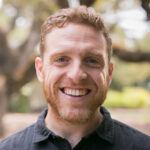
Aaron Shaw studies collective action, collaboration, and mobilization online. His current research projects address the the organizational factors that determine whether efforts to create public goods in peer production communities (like Wikipedia) are effective or not. He holds degrees from Stanford University and UC Berkeley and is a Faculty Associate of the Berkman Center for Internet & Society at Harvard University. During 2017-2018, Aaron is on leave from Northwestern. He is currently a Lenore Annenberg and Wallis Annenberg Fellow in Communication at the Center for Advanced Study in the Behavioral Sciences (CASBS) at Stanford University.
Michelle Shumate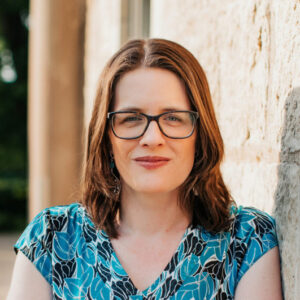
Michelle Shumate investigates the dynamics of interorganizational networks designed to impact large social issues, developing and testing theories to visualize, understand, and enable effective interorganizational networks in a variety of contexts including nongovernmental organization (NGO)-corporate partnerships, development and disease NGOs, expert-NGO partnerships in sustainable development, and interorganizational networks for healthy communities. She has published in a range of journals including Human Communication Research, Journal of Computer Mediated Communication, Management Communication Quarterly, and Journal of Communication. She was awarded a National Science Foundation CAREER award and a Beckman Fellowship at the Center for Advanced Study at the University of Illinois, where she was the director of the Interorganizational Networks research group.
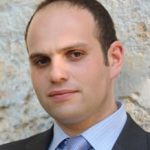 Nathan Walter
Nathan Walter
Nathan Walter is an assistant professor in the Department of Communication Studies and a faculty member in the Center for Communication and Health. Walter’s research concerns the evaluation of strategic health messages, media psychology, communication ecologies, and correction of misinformation. His studies have been published in a number of leading outlets, including the Journal of Communication, Communication Research, Human Communication Research, and Communication Monographs. His most recent work, which is supported by the FDA, focuses on novel methods to debunk tobacco-related misinformation. Nathan’s overarching research agenda revolves around the development of multilevel and ecological models that provide a nuanced approach to the study of communication-related phenomena.
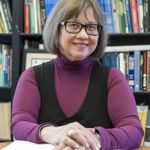 Ellen Wartella
Ellen Wartella
Ellen Wartella researches the effects of media on children and adolescents, and the impact of food marketing in the childhood obesity crisis.
Sulafa Zidani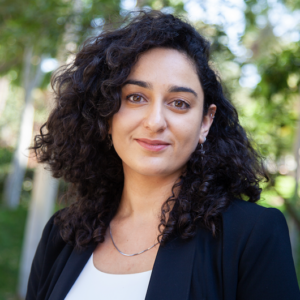
Sulafa Zidani is a scholar of global digital culture at Northwestern University, where she is an Assistant Professor of Communication Studies. She also holds an affiliation with Northwestern Qatar’s Institute for Advanced Study in the Global South. Prior to joining the faculty at Northwestern, Dr. Zidani was an Assistant Professor of Global Civic Media in the Department of Comparative Media Studies|Writing at the Massachusetts Institute of Technology. Through her scholarship and public engagement, she takes part in building justice-informed media practices.